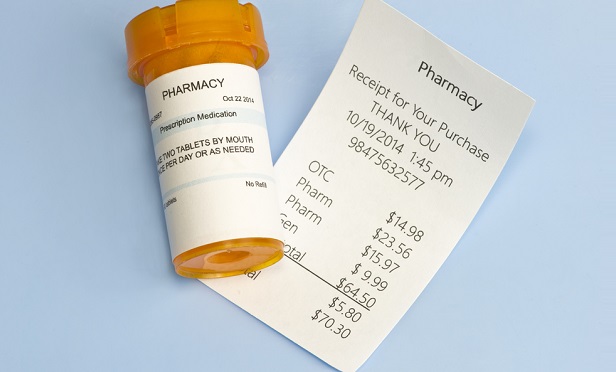 The law would have required PBMs not only to reimburse pharmacies at or above their wholesale costs paid for generic drugs, but also keep them from paying their own drugstores more than they pay others. (Photo: Shutterstock)
The law would have required PBMs not only to reimburse pharmacies at or above their wholesale costs paid for generic drugs, but also keep them from paying their own drugstores more than they pay others. (Photo: Shutterstock)
The Supreme Court will be reviewing a decision by the 8th Circuit Court of Appeals that held that the Employee Retirement Income Security Act restricts states' ability to regulate how pharmacy benefit managers set drug prices charged to pharmacies and by extension to consumers.
According to the Society for Human Resource Management, at least 38 other states have passed similar laws, but the one at the heart of the review and being challenged by the PBM industry is Rutledge v. Pharmaceutical Care Management Association. Arkansas Attorney General Leslie Rutledge is facing down the PBM industry over a state law that regulates PBMs' prescription drug pricing agreements with pharmaceutical makers.
Related: Employers rethinking their dependence on PBMs for addressing drug costs
In 2015, the Arkansas legislature passed Act 900, which would have required PBMs not only to reimburse pharmacies at or above their wholesale costs paid for generic drugs, but also keep them from paying their own drugstores more than they pay others.
The challenge to PBMs' ability to avoid such regulation could lie with ERISA, and whether it preempts state laws regulating how companies like Express Scripts and CVS Health make money off prescription drugs.
U.S. Solicitor General Noel Francisco urged the court to take the case, arguing that Act 900 "doesn't reference employer-sponsored drug plans that are regulated under ERISA, nor does it have an impermissible connection with them, so ERISA should not preempt states from regulating PBM agreements."
Thirty-two states, including California and New York, have also urged the court to take up the matter, arguing that such state laws are efforts to increase transparency and slow the skyrocketing cost of prescription drugs.
Specialty drugs drive much of the rise, accounting for less than 1 percent of prescriptions in 2019 but for 40 percent of total drug costs. In addition, the report adds that the top 10 drugs by gross cost accounted for 20 percent of employers' pharmacy spending in 2018.
Read more:
© 2025 ALM Global, LLC, All Rights Reserved. Request academic re-use from www.copyright.com. All other uses, submit a request to [email protected]. For more information visit Asset & Logo Licensing.







